Network Rail strike: Scotland likely to see more 24-hour walkouts
- Published
- comments
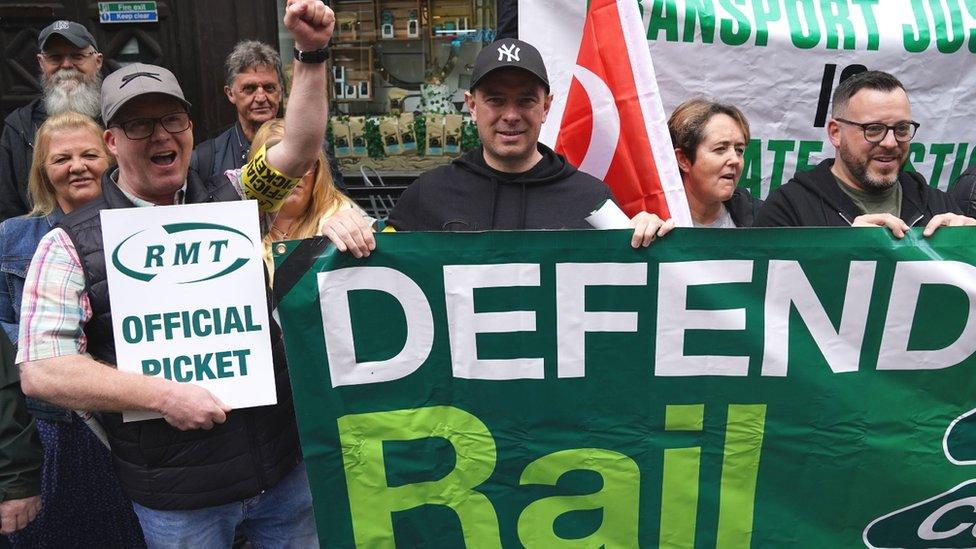
Scotland is "extremely likely" to see more 24-hour rail strikes if talks between bosses and unions continue to fail, the RMT union has said.
The warning follows strikes on Tuesday and Thursday and severely reduced services on Wednesday.
Disruption is continuing on Friday, with only 60% of trains running.
Latest talks to end the strike broke down with RMT boss Mick Lynch accusing the UK government of blocking a deal - a claim it denies.
The disruption on Friday is mainly because of delays to the start of services after signallers and control room staff stay away from overnight shifts.
The same delay will occur on Sunday after the third 24-hour walkout on Saturday.
Operator ScotRail urged people to check their journeys, external in advance.
Mick Lynch, general secretary of the Rail, Maritime and Transport (RMT) workers' union, told BBC News that Saturday's strike might not be the last.
He said talks would continue and he would consult members to see "if and when there needs to be a new phase of industrial action".
"But if we don't get a settlement, it's extremely likely there will be," he said.
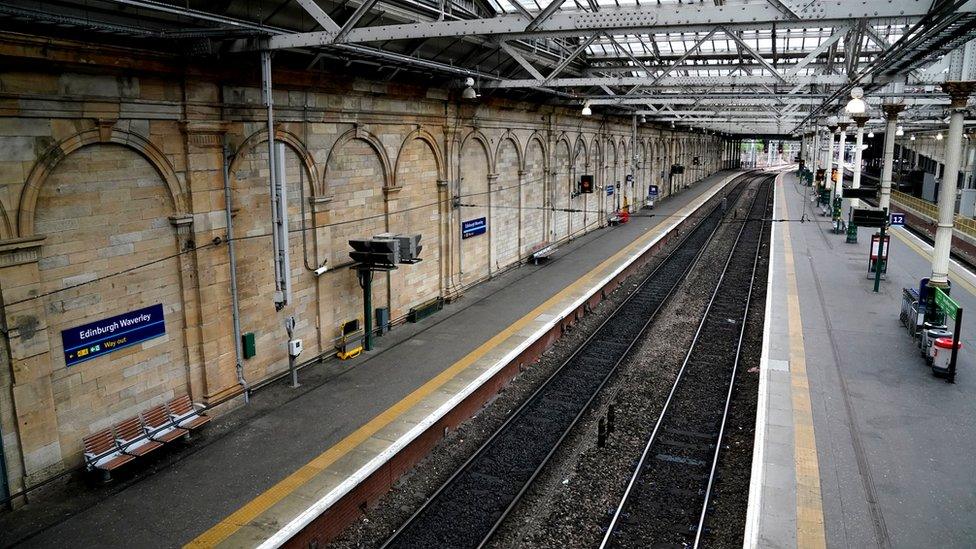
About 40,000 Network Rail staff have taken part in the strike in a dispute over pay, working conditions and redundancies.
ScotRail cancelled 90% of its services on Tuesday and Thursday, and will do so again on Saturday. Cross-border services are also being badly affected.
On the days of strike action the operator is only running services on five routes across the country between the hours 07:30 and 18:30.
These routes are:
Edinburgh to Glasgow via Falkirk High: two trains per hour
Edinburgh to Bathgate: two trains per hour
Glasgow to Hamilton/Larkhall: two trains per hour
Glasgow to Lanark: two trains per hour
Edinburgh to Glasgow via Shotts: one train per hour
In a bid to reduce pressure on the limited services ScotRail is advising customers to only travel if they really need to and to consider alternative options where possible.
It is believed many people have chosen to work at home on strike days, with Transport Scotland reporting no significant increase in road traffic.
First Glasgow said there was a 13% increase on bus passengers in the city compared with the same time last week.
After a meeting of the Scottish government resilience room on Tuesday, Deputy First Minister John Swinney called for "more urgency" from UK ministers and the Department for Transport (DfT) to break the deadlock.
In response the DfT said it was encouraging the unions and industry to agree a deal to call off the strikes.
The RMT said Network Rail's plans to cut 2,500 jobs would put safety at risk and has warned that strikes could continue over the next six months.
Network Rail Scotland said it was keen to reach a resolution but stressed any deal that was done had to be fair on both its workers and on the taxpayer.
- Published23 June 2022
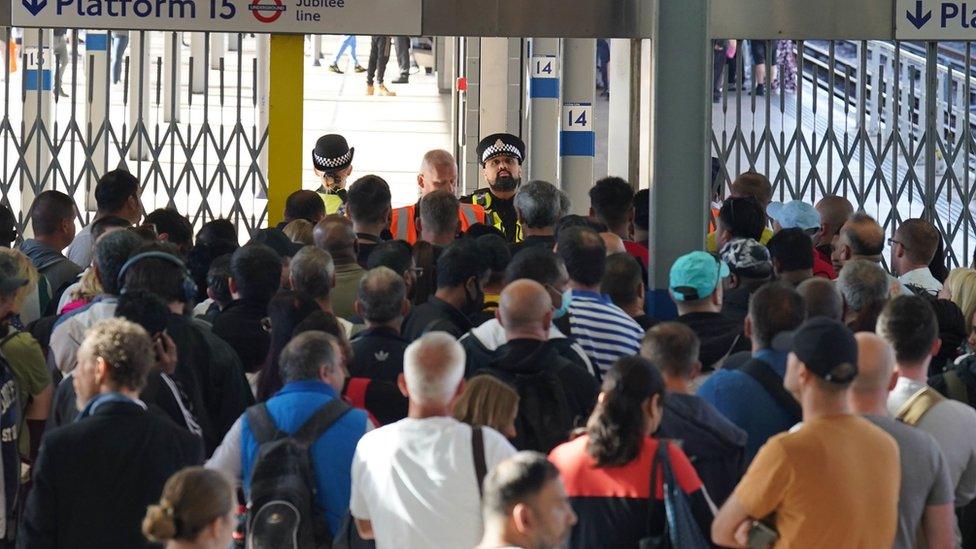
- Published22 June 2022
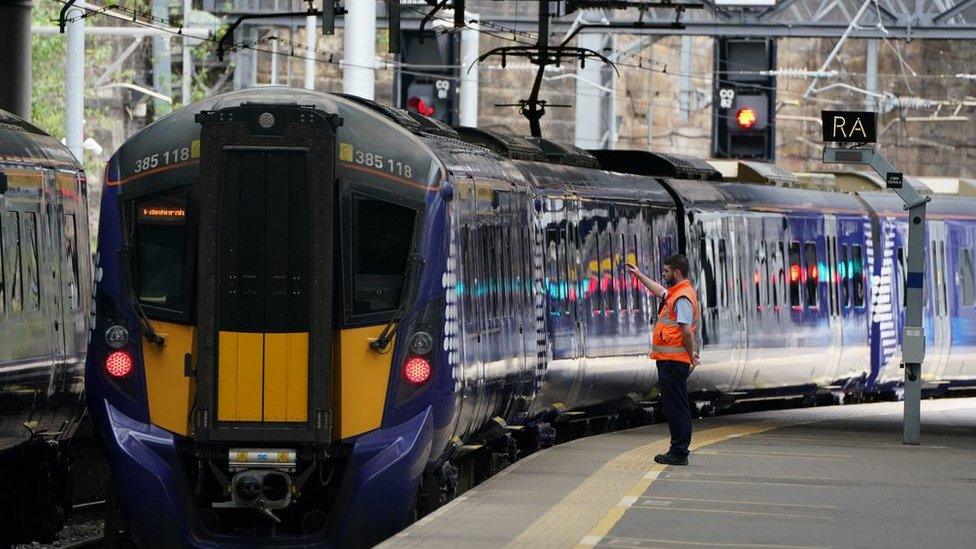
- Published21 June 2022
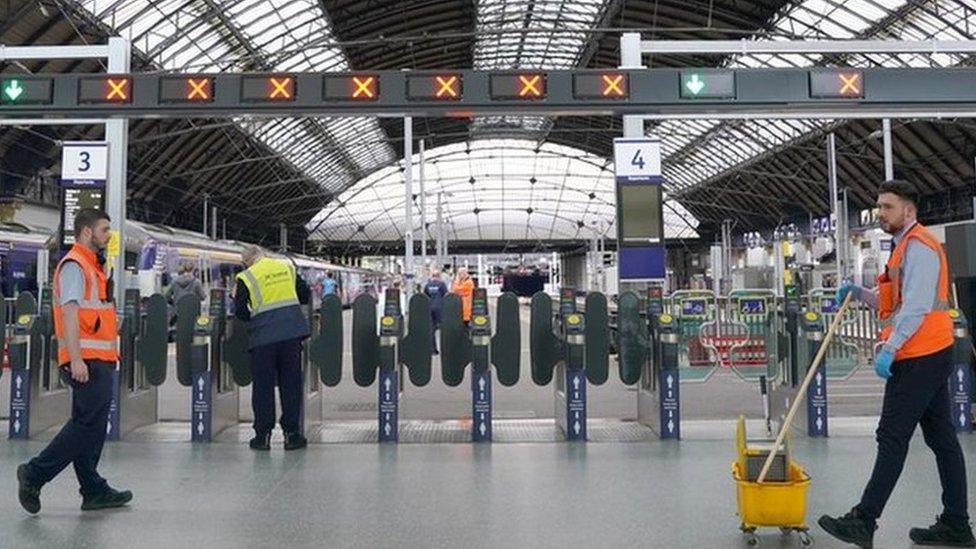
- Published21 June 2022
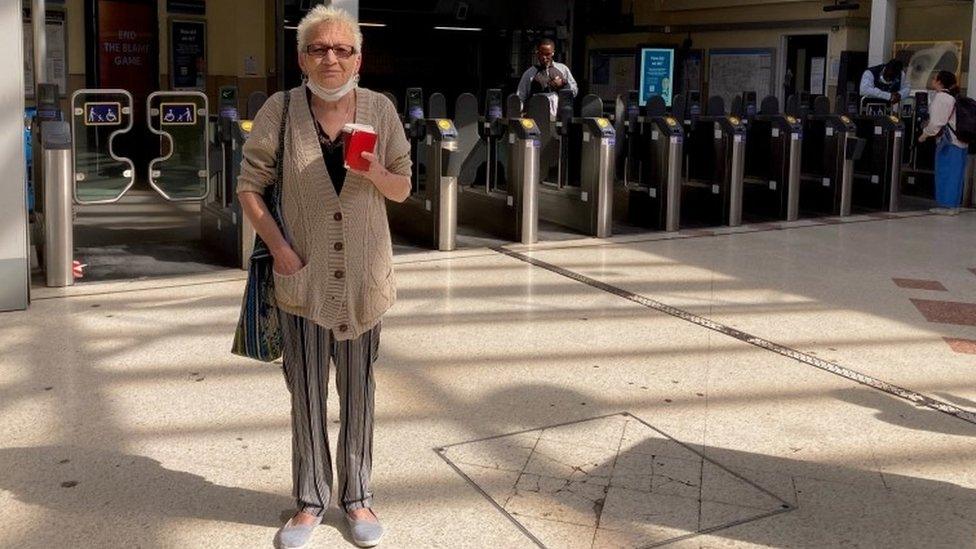
- Published19 August 2022
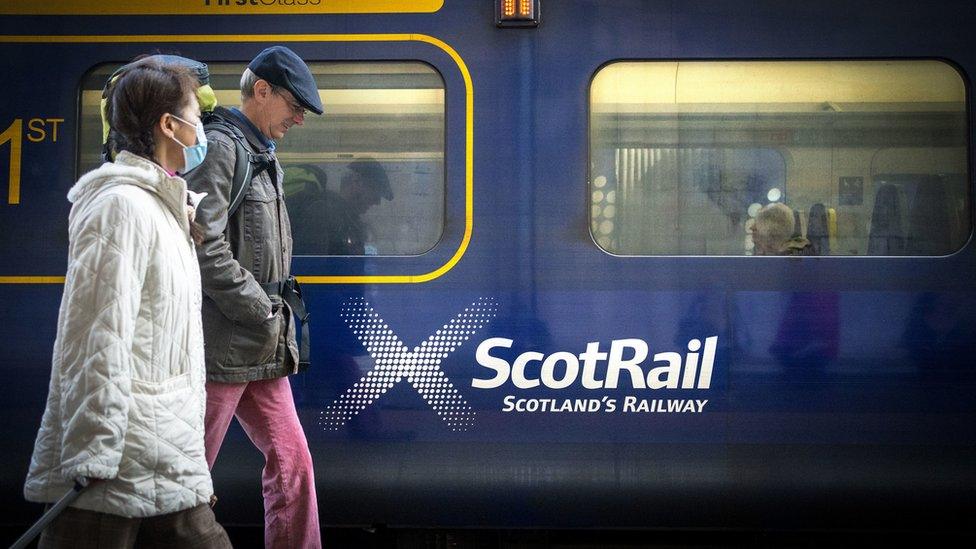
- Published18 June 2022
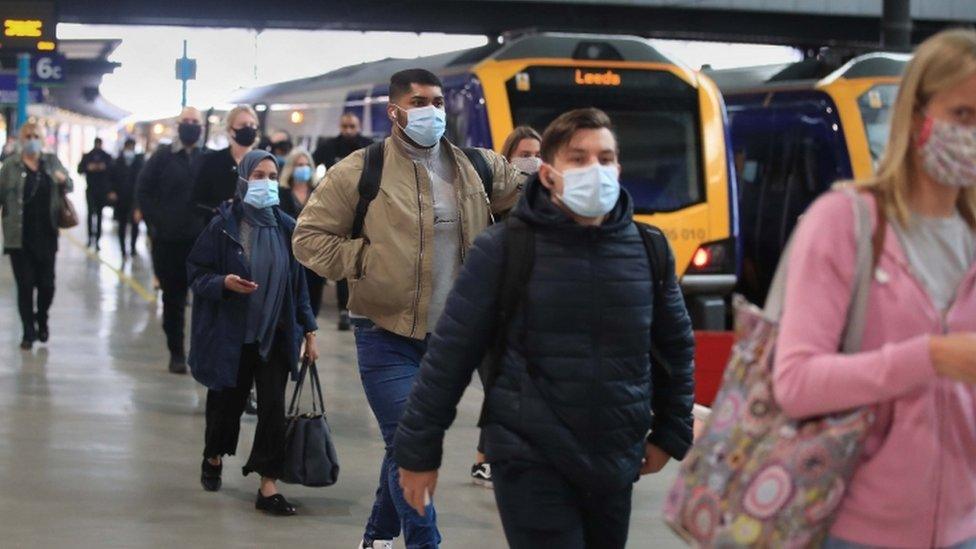
- Published16 June 2022
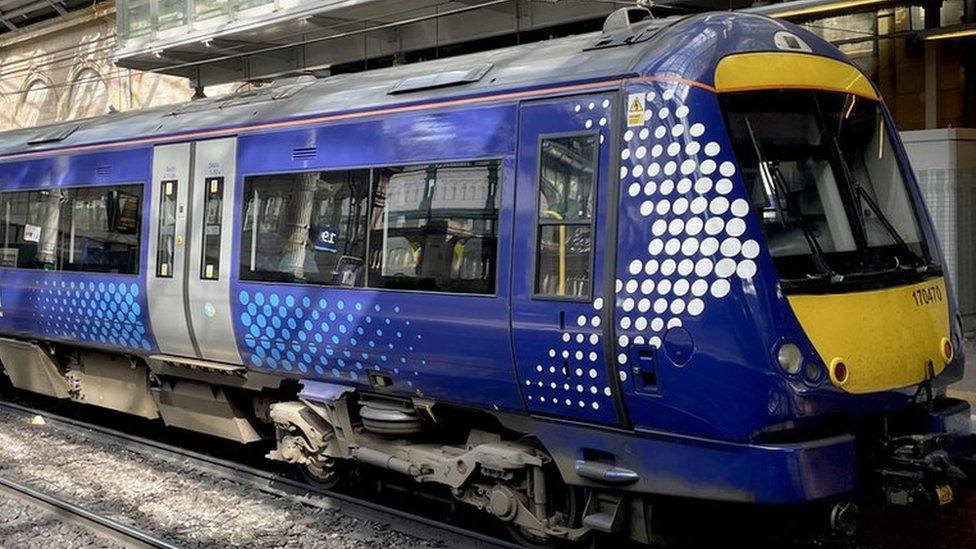
- Published15 June 2022
